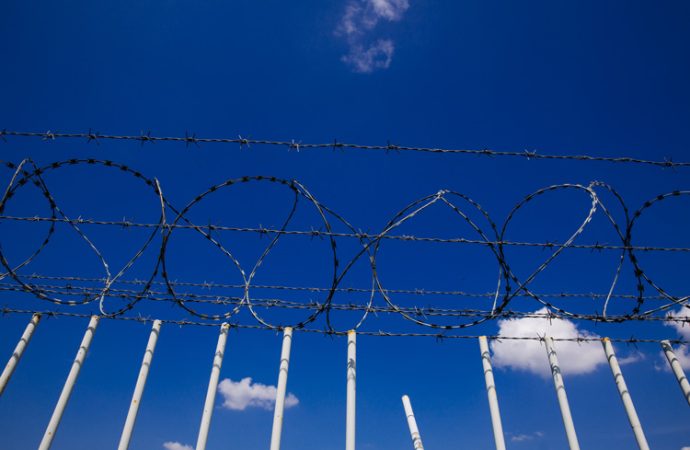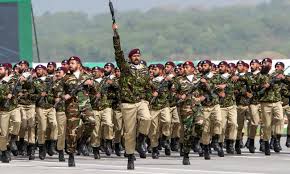In this era of hybrid warfare, military might alone is insufficient when states adopt novel strategies such as “lawfare” to undermine the opponent on all forums. This was witnessed by the world when Ukraine launched its legal blitzkrieg against Russia’s annexation of Crimea in March 2014, resulting in a loss of billions of US dollars.
In this era of hybrid warfare, military might alone is insufficient when states adopt novel strategies such as “lawfare” to undermine the opponent on all forums. This was witnessed by the world when Ukraine launched its legal blitzkrieg against Russia’s annexation of Crimea in March 2014, resulting in a loss of billions of US dollars. A similar strategy is being implemented after Russia’s invasion of Ukraine on 24th February, with Ukraine launching a legal offensive against Russia by reaching out to all the international forums for the protection of their rights under international law. To understand this approach effectively, two questions are of vital significance, firstly, what is lawfare, and secondly, how and on what forums is it being used against Russia.
The term “lawfare” was coined by Charles Dunlop at the beginning of the 21st century, and the first definition it received was “a legal process to achieve a military objective or to deny an objective to the enemy”, which was further elaborated to “the exploitation of real, perceived or even orchestrated incidents of the law of war violations being employed as an unconventional means of confronting a superior military power” and eventually in its final touches it was said to also encompass “the wrongful manipulation of the legal system to achieve strategically, military of political power.” It can, thus, be deduced that there are three ways to wage lawfare by initiating lawsuits before international tribunals like the International Court of Justice, International Criminal Court and ad hoc tribunals, by misuse of legal terminology to manipulate legal systems or through prosecution of foreign nationals in the domestic courts for military and civilian action.
When Russia invaded the Crimean Peninsula, Ukraine did not resort to military force; instead, Ukraine opted for the systematic use of lawfare to wage war. The legal arsenal used was the bilateral investment treaties signed by both Russia and Crimea by way of which the signatories reached an agreement to promote and protect private investments made by the signatories in each other’s territory, but what is unique about this dispute resolution forum is it allows private Ukrainian investors to file international arbitration claims directly against Russia for the damages arising out of Russia’s invasion of Crimea – an alleged breach of the treaty. Ukraine has largely been successful in its lawfare objective because the initial arbitration award found Russia liable for issuing damages worth billions of dollars; yet another interesting feature is compounding legal interest, i.e. the awards will increase indefinitely until paid, settled or until Russia withdraws from Crimea. This lawfare strategy has been crucial for two reasons. Firstly, it prevents the internationally recognised annexation of Crimea. Secondly, they place a huge financial toll on Russia, which they have implicitly admitted.
This pursuit of a legal fight against Russia does not end here. Several humanitarian initiatives also merit a discussion. In the execution of this goal, Ukraine reached out to multiple forums, including several proceedings before the European court of human rights and ad hoc proceedings under the dispute settlement procedures of UNCLOS, a proceeding before the international court of justice. Ukraine has also lodged two declarations under Article 12(3) of the Rome Statute of the International Criminal Court voluntarily accepting the jurisdiction of the court in order to allege crimes committed in Crimea from November 21, 2013, to February 22, 2014, as well as the those from February 2014 onwards. The office of the prosecutor of the ICC opened preliminary investigations in response to both declarations.
In the Hague alone five interstate cases are under process. One regarding Crimea and another regarding Donbass. A third- Ukraine v Russia, regarding orphan children abducted and transferred to the territory of the Russian Federation. A case on Ukrainian political prisoners submitted in August 2018 and the last regarding captured Ukrainian service members arises from the events that took place on 25th November when a Ukrainian vessel was attacked in the Kerch Strait and captured Ukrainian service members whom Russia is trying to prosecute.
While Ukraine continued its fight on those grounds, it was yet to meet another invasion by Russia. The ongoing crisis has raised a lot of alarm in the international community regarding Russia’s military actions by launching airstrikes in several residential areas. The Human Rights Watch also documented the use of cluster munition rockets in three residential areas, which could constitute a war crime but the evidence of breaches of laws of war, or international humanitarian law as we may call it, keeps on growing as amnesty international also said that it had collected evidence of Russian strikes resulting in deaths of civilians from indiscriminate attacks on civilian areas and infrastructure including strikes on protected objects such as schools and hospitals stating that forensic analysis of three separate attacks provides ‘irrefutable evidence’ of breaches of laws of war.
This time, however, Ukraine has expressed remarkable mastery and swiftness in employing judicial tools against its aggressors, immediately activating the internal court of justice and the international criminal court. Although the court’s investigation is likely to span some time as the conflict continues, there are several clauses within the Rome Statute that the ICC could consider in its evaluation of the situation in Ukraine. Specifically, these are likely to include the categories of crimes against humanity and war crimes—encompassed in Articles 7 and 8, respectively, of the Rome Statute.
In particular, Article 8 defines what constitutes war crimes and states that “the Court shall have jurisdiction in respect of war crimes in particular when committed as part of a plan or policy or as part of a large-scale commission of such crimes.” This would indicate that the court would likely seek to pursue those in a leadership position responsible for planning or sanctioning specific actions determined to constitute a war crime. Indeed, historically, the ICC has prosecuted many former military leaders and heads of state.
Numerous provisions in Article 8(2) define specific war crimes potentially relevant to the ICC’s forthcoming investigation, specifically in light of the aforementioned concerns raised by multiple parties regarding Russia’s military action in Ukraine. These include the following: Article 8(2)(b)(i): “Intentionally directing attacks against the civilian population as such or against individual civilians not taking direct part in hostilities.”Article 8(2)(b)(ii): “Intentionally directing attacks against civilian objects, that is, objects which are not military objectives.”Article 8(2)(b)(iv): “Intentionally launching an attack in the knowledge that such attack will cause incidental loss of life or injury to civilians or damage to civilian objects or widespread.”Article 8(2)(b)(iv) is reflective of Article 85(3)(b) of the Geneva Convention Additional Protocol, which expressly addresses indiscriminate attacks and notes both loss of life or injury to civilians as well as damage to civilian objects. It states, in full, that a violation of the convention will constitute:
Launching an indiscriminate attack affects the civilian population or civilian objects in the knowledge that such an attack will cause excessive loss of life, injury to civilians or damage to civilian objects. These articles are a few of the central provisions that reflect the basis of concern for Ukraine along with other stakeholders, but the critical element to prove is that of an intention to bring a successful case in any situation, the court has to prove that acts in violation were committed “intentionally” or “in the knowledge” of the effect that such action would or could have. The course of the ICC’s investigation will surely be a source of significant attention and a significant test of the court’s ability to effectively investigate crimes amid an ongoing conflict.
- Russia-Ukraine and Lawfare - October 26, 2022
- Russia – Ukraine War & its Impact on Growing Economies - September 21, 2022
- Global Warming and Pakistan - September 15, 2022






















Leave a Comment
Your email address will not be published. Required fields are marked with *